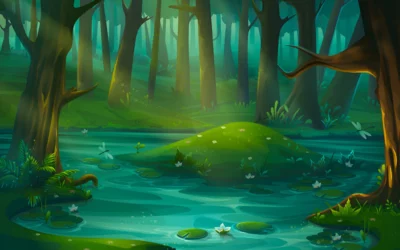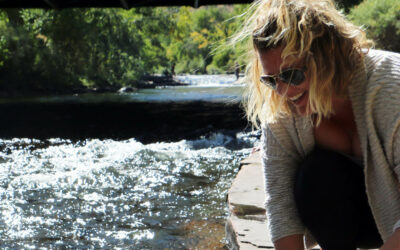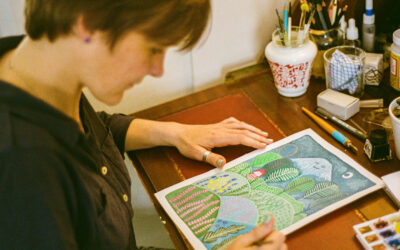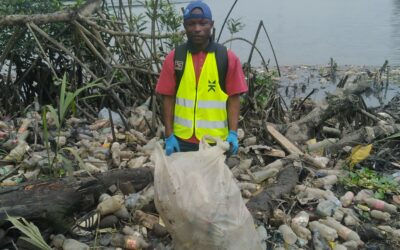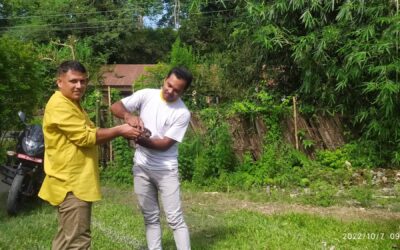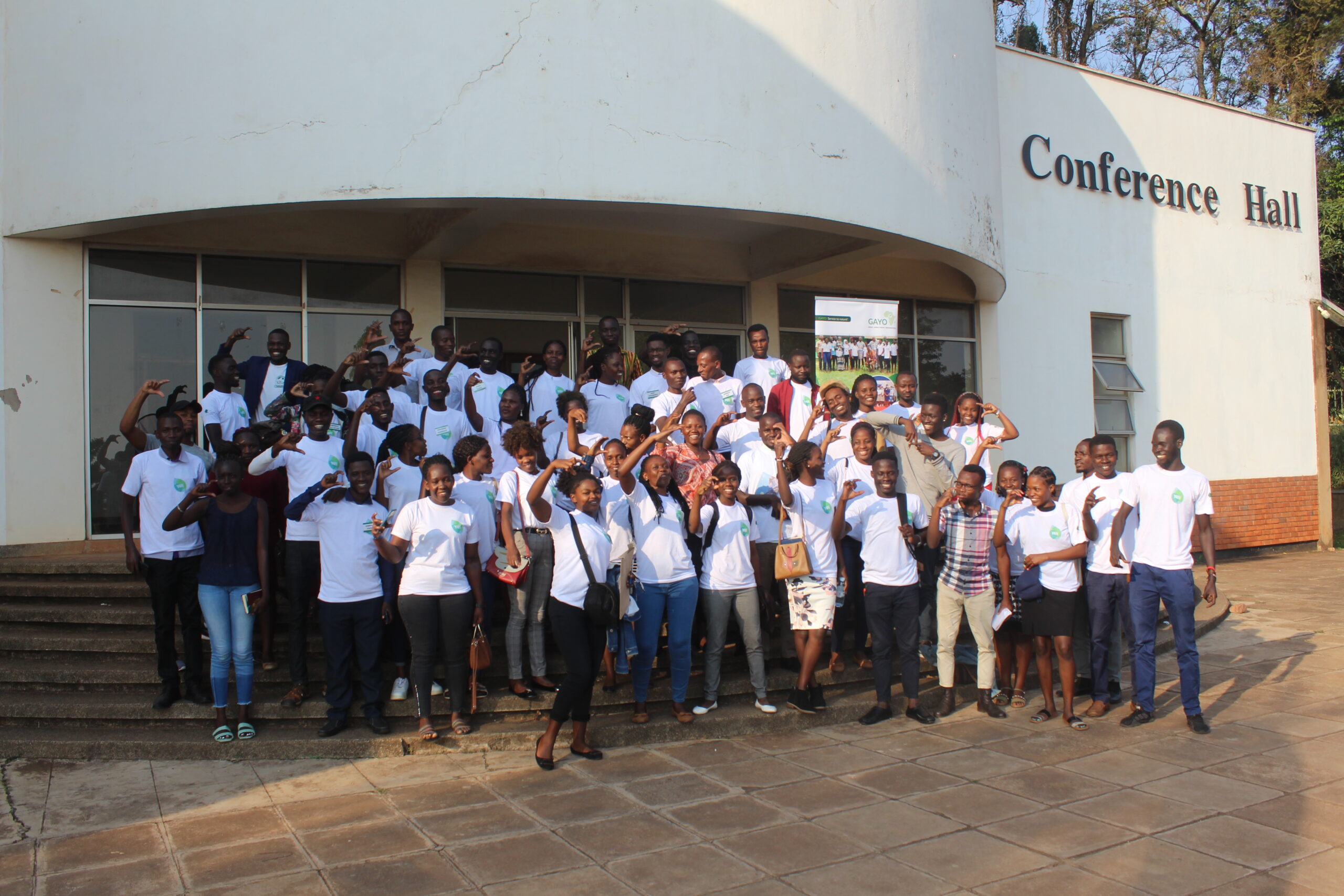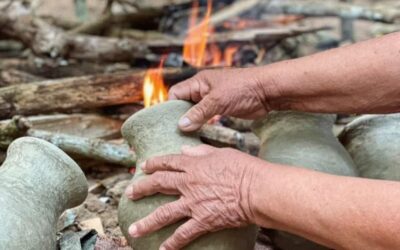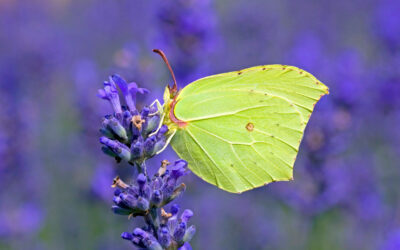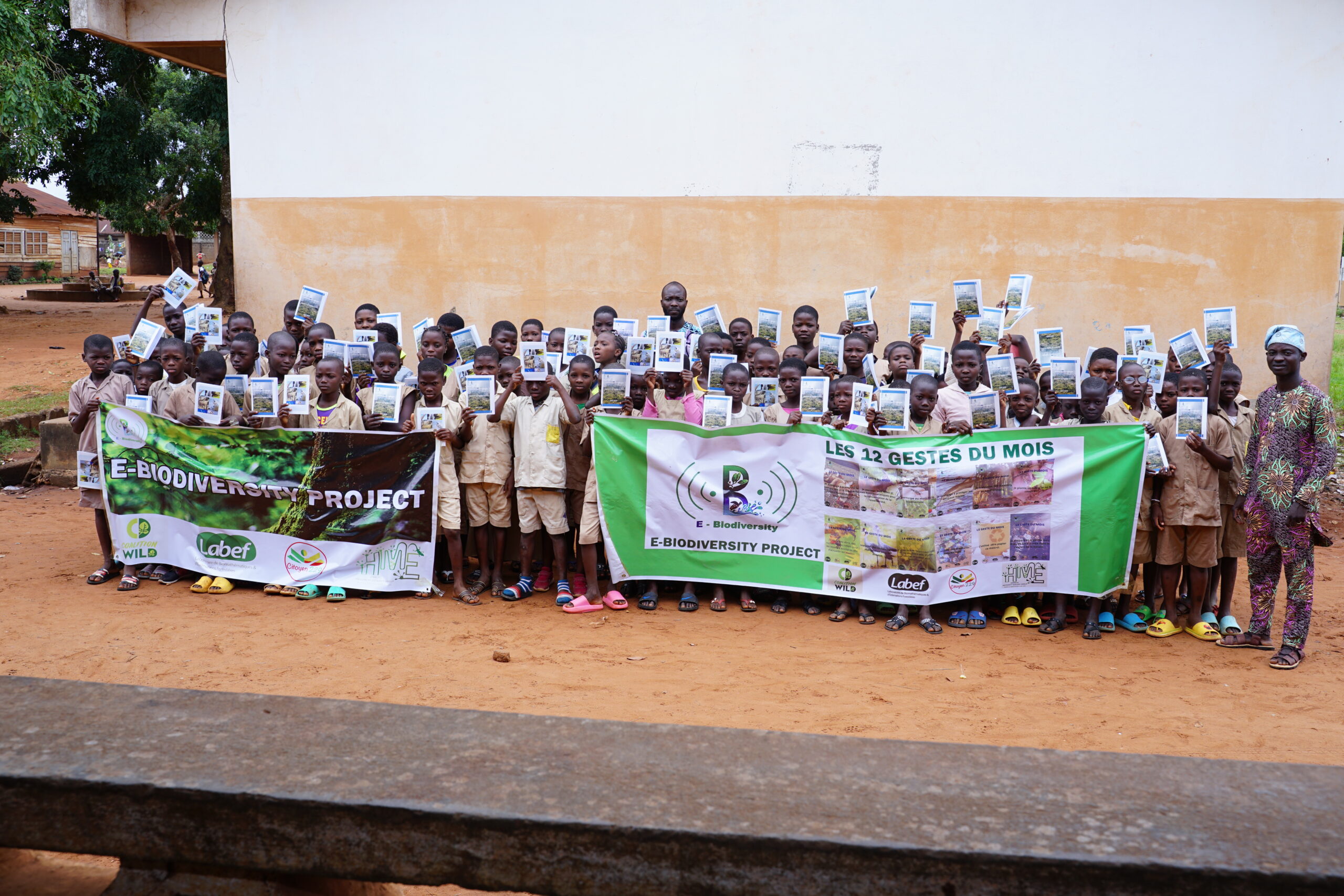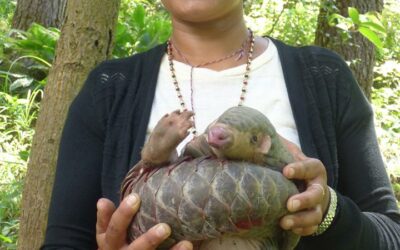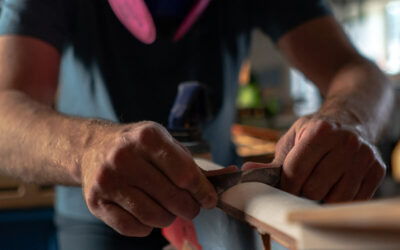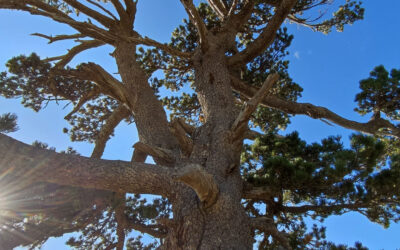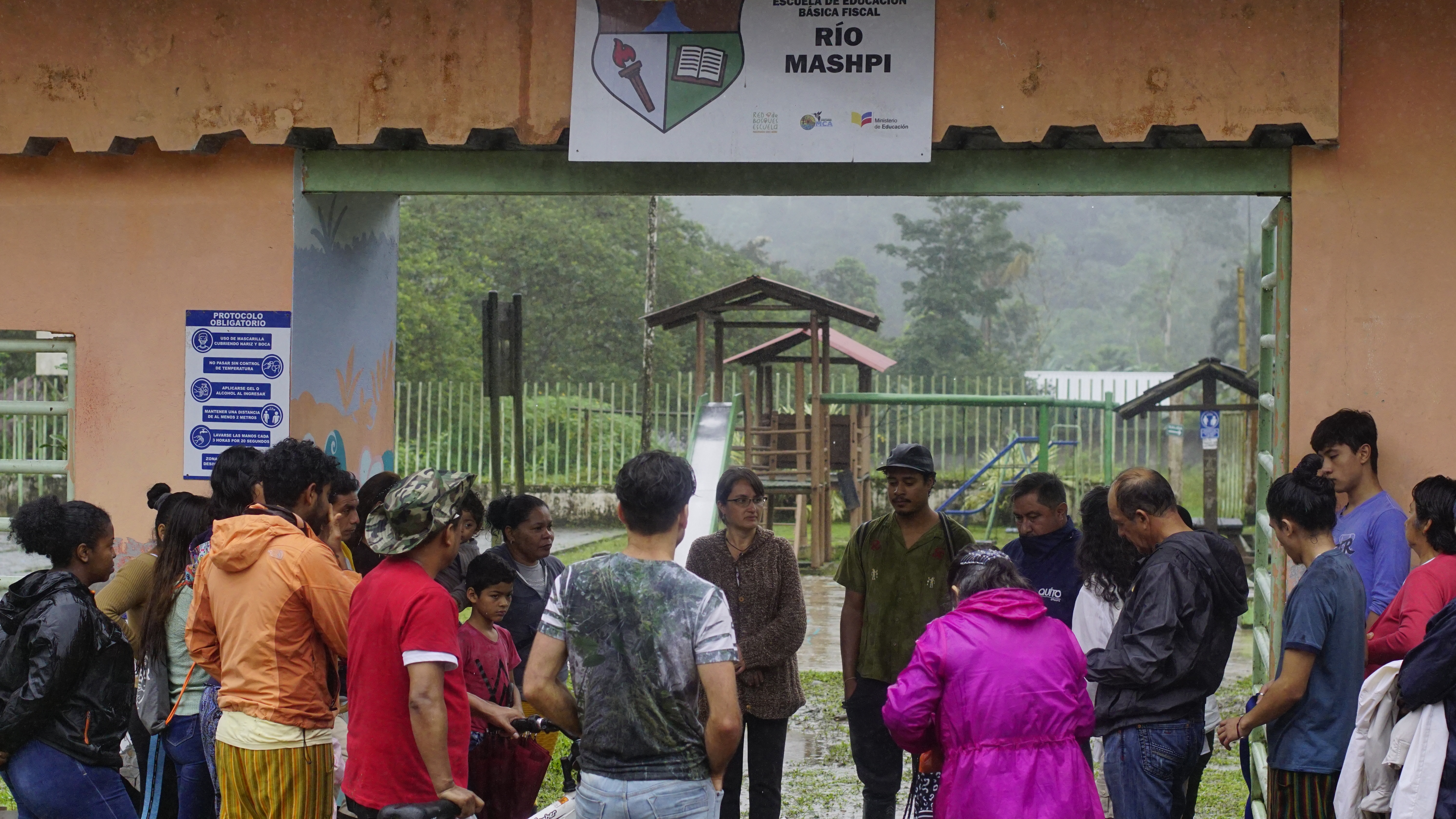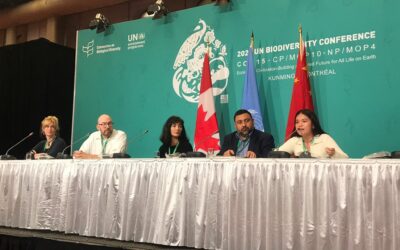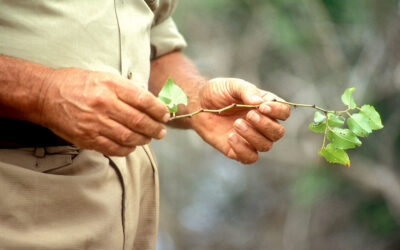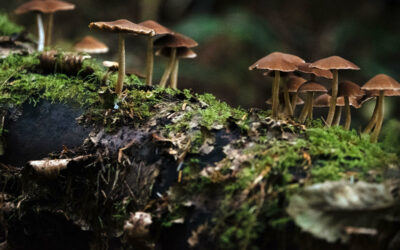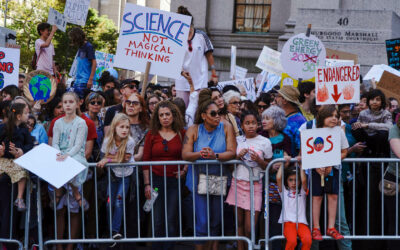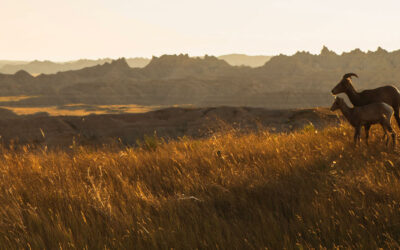Conservation Conversations – Crypto & Conservation
Take a look at the up and coming world of crypto conservation with climate change activist, Chimpzee!
Hidden Conservationists: Behind the Scenes at WILD with Jennifer Meyer, Chief Operations Officer
Meet Jennifer Meyer, WILD’s Chief Operations Officer, a nature conservation professional helping make the world a better place.
Q&A with Madelaine Couch – The Power of Art to Tell Important Stories
Madelaine is an illustrator, painter, and writer, whose work celebrates Indigenous wisdom, human connection, animals, and the mystical elements of life.
How One Environmentalist is Turning Plastic Waste into a Valuable Resource in Cameroon
Ayamba's passion for the natural environment has driven him to turn plastic waste into a valuable resource in Cameroon, creating new jobs, and relieving Douala from plastic pollution. His innovative approach seeks to monetize what was once waste, change the paradigm on plastic, and reduce extreme poverty in Cameroon. Through the EXCELerator program, Ayamba has gained knowledge and skills that have helped his project and him personally.
Fishing the Fishing Cat in Koshi: Need for conservation education, rescue/rehabilitation and capacity building program for the front liners
In Nepal, it is common to see people struggling to get the correct information and skills to respond to the cats including fishing cats and in many cases ending up with mal-practices, even though they intend to help during rescue and rehabilitation activities. Frontline conservation communities require practical information about the Fishing cat, ways to respond, handle, rescue and rehabilitation.
Unlocking the Power of Capacity-building in Uganda
Uganda is one of the most biodiverse countries in the world, ranking in the top 10 globally, and this natural richness has inspired many conservationists to take action to protect the country's natural heritage. One such conservationist is Aiita Joshua Apamaku, a biologist from Uganda who is passionate about biodiversity and the climate crisis.
Ceramics is a feminine spirit
WILD’s Yawanawá Cultural Liaison Intern, Luna Rosa Soriano Yawanawá, took us behind the scenes of the ceramic pots creation process in her community.
Invest in the Planet by Investing in the Youth
As we celebrate Earth Day 2023, it's important to reflect on the role of young people in conservation efforts. The next generation has the potential to drive meaningful change and create a more sustainable future for our planet. How can we support young people as we move towards conserving the planet’s half?
Protecting Wilderness Is Protecting Its Inhabitants: Butterflies
Butterflies are much more than beautiful, flying insects - they play a vital role in the health of our planet. Discover more.
Children as Conservation Catalysts: The Role of Education in Biodiversity in Benin
Moustapha's E-biodiversity project was launched with the aim of raising awareness and educating children about the importance of biodiversity conservation. He noticed that there was a lack of biodiversity education in the primary schools of the Pobèregion in Benin. Moustapha and his team decided to launch a project that would contribute to the fight against the threats to biodiversity conservation.
World Pangolin Day Celebration highlighting the rare life in a box: Birth from a confiscated Chinese pangolin in Nepal
The day is an opportunity for pangolin enthusiasts and the wider human community to join hands in raising awareness about the plight of these unique mammals that play a critical role in their ecosystems by providing the earth with natural pest control.
Conservation Conversations – Instrument Building Industry
Where music meets sustainability. Learn how one man is causing a ripple effect in the guitar industry.
Protecting Wilderness Is Protecting Its Inhabitants: Loricate Pines
The loricate pine should not exist today but this “living fossil” has defied the odds. Learn more about the history and importance of this special species!
Capacity Development for Community Empowerment: The Case of the Mashpi Community
In the northwest part of the district of Quito, in one of the most biologically diverse areas of the world, lies the Mashpi Reserve. A known bird watching paradise, the Mashpi community provides a sense of symbiosis between human and nature. However, despite the promise that Mashpi brings, a glaring problem persists: the government fails to prioritize its waste recollection services. Esteban Barriga, an EXCELerator 2021 alumnus, saw this and how the waste management issue has affected the Mashpi community, and decided to do something about it.
The Successes and Pitfalls of COP15: Why We Will Continue to Talk About Half
The recently concluded COP15 is a historic event, and it has given us much to think about. The gathering of world leaders and conservation actors has resulted in the drafting of the post-2020 Global Biodiversity Framework (GBF). This is a landmark deal indeed, as it gives us a framework on how to move forward in the protection and conservation of the planet’s biodiversity. However, while we acknowledge the significance of such a feat, we are also aware of its pitfalls.
A New Era For WILD
As of January 1, 2023, Vance G. Martin has stepped back from his role as the leader of WILD. Read more about what’s coming next for WILD.
Protecting Wilderness Is Protecting Its Inhabitants: Fungi
There are up to 3.8 million species of fungi on Earth but, why should we care about these sometimes-strange-looking eukaryotic organisms?
COP15: Necessary But Not Sufficient
The United Nations convened in Montreal last week (COP15) to reach a new milestone: to protect 30% by 2030. Politically, this is a huge step forward. Ecologically, the road is uncertain.
Community Is Good For The Planet
Community is one of WILD’s favorite regulatory functions because it moderates as it fulfills. What does this mean?
Success for Nature Begins with Support for Supporting Ecological Services
These services set the stage for all the other essential services that make life possible. They are the bedrock of our living biosphere.
